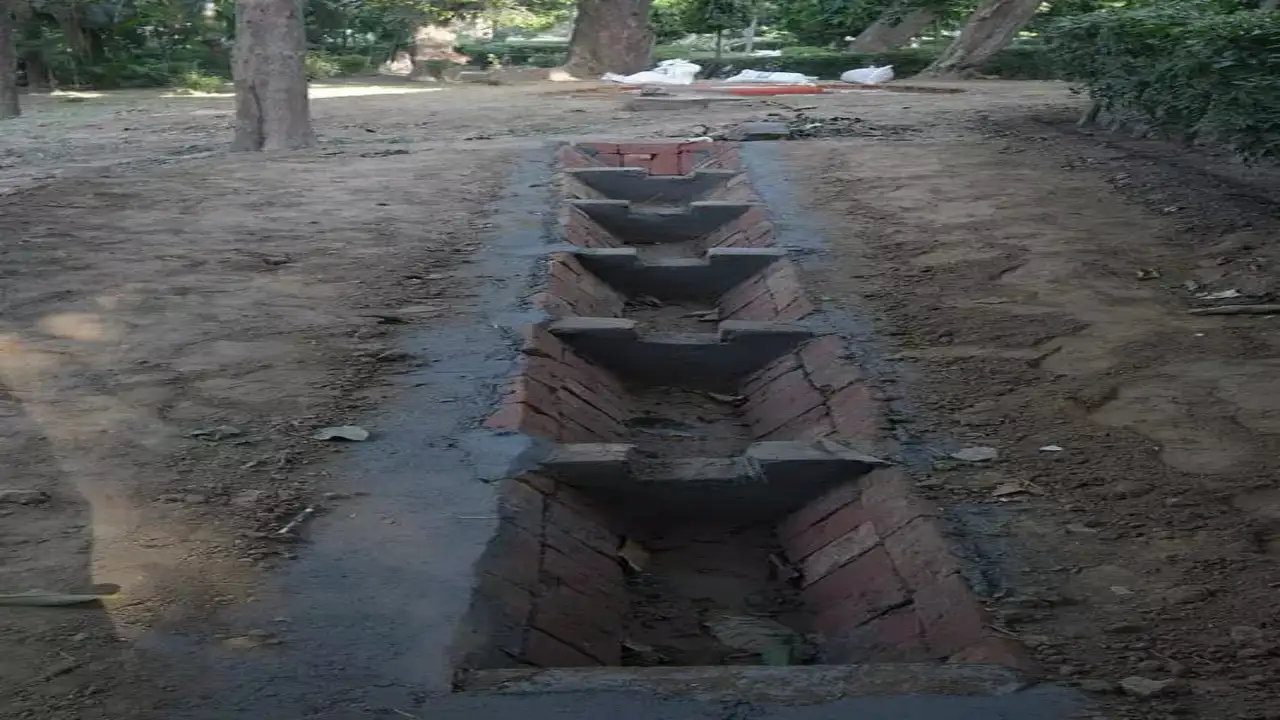The New Delhi Municipal Council (NDMC) has announced plans to construct an advanced modular rainwater harvesting pit at Bharti Nagar Park.
This initiative aims to tackle persistent waterlogging issues in the area and enhance groundwater recharge capabilities. The proposed rainwater harvesting pit will measure 8 by 2.5 metres and utilize specialized perforated pipes to channel rainwater up to a depth of 60 metres. Unlike traditional harvesting pits that typically reach depths of 15 to 20 metres, this system is designed to penetrate the hard clay layer beneath the surface, facilitating deeper water percolation. An NDMC official explained, “Due to this hard clay, water can’t reach the natural groundwater, causing inundation.”
The rainwater harvesting pit will employ modular boxes—pre-fabricated polymer-based blocks placed in an interlocked configuration around the borewell pipe. This design ensures efficient water percolation and minimizes the use of bricks and cement, making the system both cost-effective and eco-friendly. The modular system also allows for dual land usage, enabling the area above the pit to serve as parking or park space.
Bharti Nagar and the adjacent Golf Links area have been prone to waterlogging, particularly during the monsoon season. Last year, a section of Bharti Nagar’s boundary wall collapsed due to water accumulation, allowing rainwater to enter Golf Links. To prevent such incidents, the NDMC has implemented additional measures, including the installation of de-watering pumps and the cleaning of the Sunheri nullah, which connects to the drainage system in the area.
The Municipal Corporation of Delhi (MCD) is collaborating with the Delhi Metro Rail Corporation (DMRC) for deep desilting of the Sunheri nullah’s covered portion near Dayal Singh College. This joint effort aims to improve the overall drainage capacity and reduce the risk of waterlogging in the region.
The NDMC’s initiative aligns with its broader strategy to enhance water conservation and flood management through the adoption of modular rainwater harvesting technology. This approach not only addresses immediate waterlogging issues but also contributes to long-term groundwater recharge, supporting the creation of eco-friendly and sustainable urban spaces.
As the construction of the rainwater harvesting pit progresses, it is expected to serve as a model for innovative water management solutions in urban parks, promoting resilience and sustainability in Delhi’s urban infrastructure.
Also Read : New Ganga Bridge to Enhance Connectivity Between Bihar and UP


